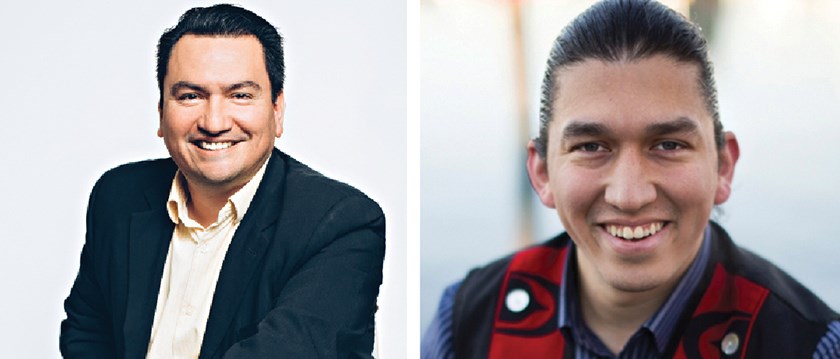A prominent Squamish Nation member is speaking out about what he sees as political interference in the band’s current election reform process.
In 2015, an independent electoral commission was set up to revise the 1981 Squamish Indian Band Election Regulations.
The Nation’s council spent the last couple of years supporting an election reform process, guided by a member-run electoral commission and then backed away from the process when the final draft Election and Referendum Law was presented this summer, says Khelsilem, currently an electoral officer with the Nation.
“There was a final draft that was submitted to chiefs and council after a two-year consultation process… basically all the ideas that had support from the membership through the consultation process,” he said. Chiefs and council never approved the commission’s request for a referendum.
Khelsilem is a well-known activist and a lecturer at Simon Fraser University. He launched Kwi Awt Stelmexw, a language immersion school that aims to revive the traditional Sḵwx̱wú7mesh language, heritage and culture.
The next Squamish Nation council election is set for Dec. 10.
The nomination meeting for candidates is scheduled for Nov. 5. Khelsilem will no longer be an elections officer after that meeting. He was put into that position during the last election four years ago.
The Nation’s leadership argues the reason for not following through with a referendum was because independent legal advisor with First Peoples Law deemed the changes proposed by the commission to be beyond the scope of the authority and mandate of the electoral commission.
The commission was tasked with updating the process for electing councillors and for holding a referendum.
Instead, the final report “contained numerous sections that addressed the governance and administration of council,” a Nation notice to members states.
The final report also had provisions that extended the authority of the commission to include allowing it to investigate and remove individuals from electoral office.
Squamish Nation hereditary Chief Ian Campbell said that the valid work of the commission will not be lost and the independent legal counsel is going to distill the group’s final report down to what is within its mandate.
“I think it is good information, I just think how do we then tackle that in a proper and methodical manner,” he said.
In the notice to the membership regarding the upcoming election, the Nation leadership stated that the commission also did not meet certain timelines during the process.
“We have simply run out of time to finalize and approve the draft election and referendum documents and hold a ratification vote prior to the next election,” reads the notice.
Khelsilem calls that “spin.” He said the council was kept updated by the commission and that a meeting the group had arranged with council early in the summer was cancelled at the last minute by Nation leadership.
The Nation’s chiefs and council has also given themselves the authority to write and draft the election code before it goes to membership referendum, Khelsilem says.
“Council may amend the draft code and any related regulations,” reads a Squamish Nation band council Sept. 29 resolution, published on its website.
Campbell said this is not a conflict of interest for chiefs and council.
“Because we are a government, we need to ensure that any commission that is appointed will adhere to the mandate that is provided to them,” he said.
“We can’t allow any commission to have liberties to just change whatever they hear from the public. We need them to fulfill a duty and it is the council’s responsibility to bring that back in line with the mandate. It is our fiduciary obligation to look after the best interest of the collective.”
When the revised draft of the Election and Referendum document is complete, the council will ask the commission to develop a new work plan and timeline. Eventually, it will be brought back to the membership for ratification in the 2018 to 2021 term.
“Nothing is predetermined in that manner,” Campbell said.
It also has to be worked out what level of community support would be needed in a referendum, he said, for example whether it will be 50 per cent plus one in support to pass or some other percentage.
Khelsilem said Nation members need to consider the actions of the current council in the upcoming election.
“I think, unfortunately, this council has chosen to make election reform political, by inserting themselves into it and making it about themselves,” he said.
“I hope membership really considers the decisions that have been made over the last four years in their selection of council this coming election and makes election reform a priority so we can fix the system.”




